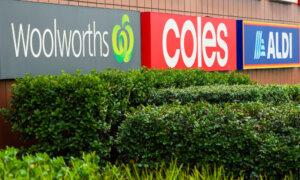Retailers’ Fortunes Change as Shop Tills Set to Ring
Australian retailers can look forward to a brighter 2025 as interest rate cuts help improve household finances and stimulate spending.
Deloitte Access Economics partner David Rumbens believes that an interest rate cut could significantly boost economic activity.
According to Rumbens, a rate cut from the Reserve Bank of Australia (RBA) could serve as the signal consumers need to feel confident enough to spend freely.
After a period of inconsistent consumer spending, the advisory firm predicts a 2.1 percent increase in real retail turnover in 2025, following a 0.3 percent decline in 2024.
Despite lingering high borrowing costs and price pressures affecting household budgets, tax cuts, energy bill relief, and real wage growth have provided some support.
The national accounts released on Dec. 4 revealed that most Australians have been using the extra money to pay off mortgages and build up savings.
There are indications that consumers have been waiting for discounts, with the Australian Bureau of Statistics attributing an early start to Black Friday sales as the reason for a significant 0.6 percent increase in retail sales in October.
The bureau’s broader household spending indicator exceeded expectations and showed more money being spent on discretionary items like recreation.
Rumbens noted that consumers were transitioning from saving to spending, especially when there are deals to be found.
According to him, there has been a noticeable increase in searches for ‘sales’ in Google trends data compared to 2023, indicating a shift in consumer behavior.
The potential risks to the outlook include the upcoming federal election and trade tensions under a second Trump administration.
The “discount dilemma,” where customers become accustomed to sales and are hesitant to pay full price, poses another challenge.
The timing of the consumer recovery is also a risk factor, as it may require interest rate cuts to encourage consumers to spend.
The RBA has expressed concerns about consumer behavior impacting underlying price pressures.
While a weak consumer sector could negatively impact the economy and job market, a slower economy is part of the central bank’s strategy to control inflation.
The RBA board is scheduled to meet next week, but the likelihood of an interest rate cut in December is low, with financial markets fully pricing in a cut by April 2025.
Economic analysts at NAB, Westpac, ANZ, and Commonwealth Bank are now predicting easing to start in May or February.





